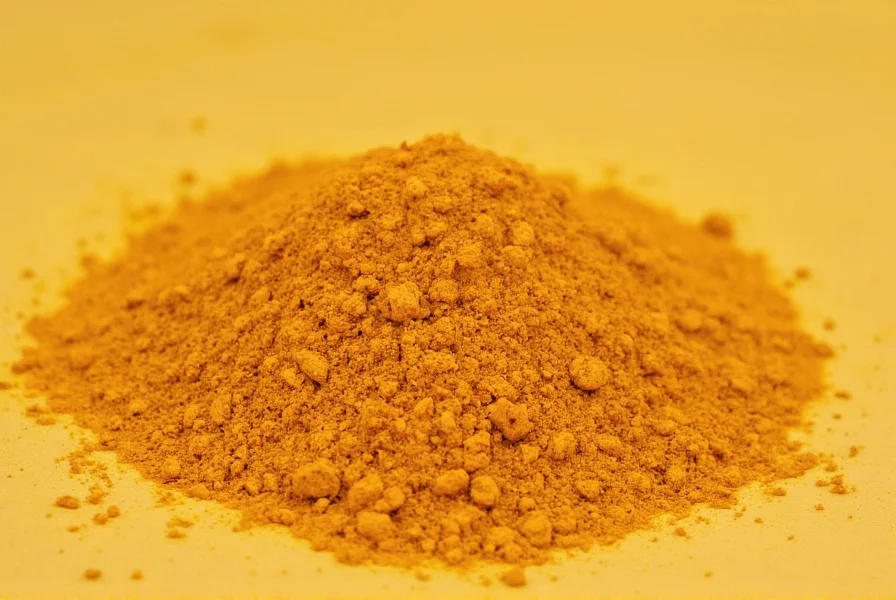The recommended daily turmeric dosage for general health is 500-2,000 mg of curcumin (the active compound), typically equivalent to 1-3 grams of turmeric powder. For therapeutic purposes under medical supervision, doses up to 8,000 mg daily have been studied, but most research shows optimal benefits at 1,500-3,000 mg of turmeric root powder or 80-500 mg of standardized curcumin extract taken daily. Always consult your healthcare provider before starting supplementation, especially if you have medical conditions or take medications.
Understanding the proper daily turmeric dosage for inflammation and general wellness requires examining scientific research, different turmeric forms, and individual health factors. Turmeric, particularly its active compound curcumin, has gained significant attention for its potential anti-inflammatory and antioxidant properties. However, determining how much turmeric you should take per day isn't one-size-fits-all—it depends on your health goals, the form you're using, and your individual physiology.
Understanding Turmeric Forms and Their Potency
Not all turmeric products deliver the same amount of active compounds. The key difference lies in curcumin concentration:
| Turmeric Form | Typical Curcumin Content | Equivalent Daily Dosage |
|---|---|---|
| Raw turmeric root | 2-5% curcumin | 10-15 grams for therapeutic effects |
| Turmeric powder (culinary) | 3% curcumin | 1-3 grams daily for general health |
| Standardized curcumin extract (95%) | 90-95% curcumin | 80-500 mg daily |
| Curcumin with piperine (enhanced) | 95% curcumin + 5-20mg piperine | 500 mg daily (equivalent to 4,000-8,000 mg plain turmeric) |
This comparison of turmeric supplement forms shows why understanding what you're consuming matters. Culinary turmeric contains only about 3% curcumin by weight, meaning you'd need to consume substantial amounts to reach therapeutic levels. Most clinical studies use standardized extracts containing 95% curcuminoids, which deliver significantly more active compounds in smaller doses.

Daily Turmeric Dosage Recommendations by Purpose
Research suggests different optimal doses depending on your health goals. The appropriate amount of turmeric per day varies considerably between general wellness and targeted therapeutic use.
General Wellness and Prevention
For maintaining overall health and preventing inflammation:
- Culinary use: 1-3 grams of turmeric powder daily (about ½-1½ teaspoons)
- Standard supplements: 400-600 mg of curcumin extract once or twice daily
- Enhanced absorption formulas: 500 mg once daily
This daily turmeric intake for general health provides sufficient curcumin to support the body's natural anti-inflammatory processes without risk of side effects for most healthy adults.
Therapeutic Applications
For specific health concerns like joint pain or chronic inflammation, higher doses may be appropriate under medical supervision:
- Osteoarthritis: 500 mg of curcumin extract twice daily (1,000 mg total)
- Metabolic health support: 80-500 mg of curcumin daily
- Post-exercise recovery: 500 mg taken before and after exercise
Multiple studies, including research published in the Journal of Medicinal Food, indicate that optimal turmeric dosage for inflammation typically falls between 80-500 mg of standardized curcumin extract taken once or twice daily. Higher doses don't necessarily provide additional benefits due to curcumin's limited bioavailability.
Safety Considerations and Maximum Daily Limits
While turmeric is generally safe, understanding how much turmeric is too much per day is crucial for safe supplementation. The World Health Organization suggests an acceptable daily intake of 0-3 mg per kilogram of body weight for curcumin.
For a 150-pound (68 kg) adult, this translates to approximately 200 mg of curcumin daily. However, clinical studies have safely used much higher doses for limited periods:
- Short-term safety: Doses up to 8,000 mg of turmeric extract have been used in studies for 3 months without serious side effects
- Long-term safety: Doses above 1,200 mg daily of curcumin extract may cause gastrointestinal issues with prolonged use
- Maximum recommended: Most experts suggest not exceeding 3,000 mg of turmeric powder or 1,500 mg of curcumin extract daily without medical supervision
Common side effects of excessive turmeric intake include digestive upset, acid reflux, and in rare cases, increased risk of kidney stones due to turmeric's oxalate content. Individuals with gallbladder issues should exercise particular caution, as turmeric may stimulate bile production.
Factors That Influence Your Ideal Turmeric Dosage
Several personal factors affect how much turmeric you personally should take:
- Absorption enhancers: Curcumin has notoriously poor bioavailability. Products containing piperine (from black pepper) can increase absorption by up to 2,000%, meaning you need significantly less to achieve the same effects
- Health conditions: People with inflammatory conditions may benefit from higher doses, while those with bleeding disorders should use lower amounts
- Medication interactions: Turmeric may interact with blood thinners, diabetes medications, and certain chemotherapy drugs
- Age and weight: Larger individuals may require higher doses, while older adults may need lower amounts due to slower metabolism
Timing and Frequency of Turmeric Supplementation
Understanding when to take turmeric for maximum benefit is almost as important as dosage. Research suggests:
- With food: Taking turmeric with a meal containing healthy fats significantly improves absorption
- Distribution: Splitting daily dosage into two servings (morning and evening) maintains more consistent blood levels
- Cycling: Some experts recommend taking breaks after 8-12 weeks of continuous use to maintain effectiveness
The best time to take turmeric supplements appears to be with your largest meals of the day. Since curcumin is fat-soluble, consuming it with foods containing healthy fats like avocado, olive oil, or nuts enhances absorption substantially.
Consulting Healthcare Professionals
Before determining your personal daily turmeric consumption amount, consider these guidelines:
- Discuss with your doctor if you have gallbladder disease, bleeding disorders, or diabetes
- Stop taking turmeric supplements at least two weeks before scheduled surgery
- Monitor for interactions if taking blood thinners, diabetes medications, or chemotherapy drugs
- Start with lower doses and gradually increase to assess tolerance
Registered dietitians and integrative medicine specialists can provide personalized recommendations based on your health status and goals. They can help determine the right turmeric dosage for your specific needs while considering other aspects of your health regimen.
Conclusion: Finding Your Optimal Turmeric Intake
Determining how much turmeric you should consume daily requires balancing scientific evidence with individual factors. For general wellness, 1-3 grams of turmeric powder or 400-600 mg of curcumin extract daily provides significant benefits for most adults. Those seeking therapeutic effects for specific conditions may benefit from higher doses of standardized extracts under professional guidance.
Remember that consistency matters more than extremely high doses. Regular daily intake of moderate amounts delivers better results than occasional large doses. Always prioritize quality supplements with proven bioavailability, and consult your healthcare provider to determine the safest and most effective daily turmeric amount for your individual health profile.
What is the maximum safe amount of turmeric to take daily?
For most adults, the maximum safe daily intake is 3,000 mg of turmeric powder or 1,500 mg of curcumin extract. While studies have used doses up to 8,000 mg for short periods, long-term consumption above 1,500 mg of curcumin daily may cause gastrointestinal issues. The World Health Organization recommends no more than 3 mg of curcumin per kilogram of body weight daily for ongoing use.
How much turmeric powder equals a curcumin supplement?
Since turmeric powder contains only about 3% curcumin by weight, you would need approximately 3,000-4,000 mg (3-4 grams) of turmeric powder to equal 100 mg of standardized curcumin extract. For example, 500 mg of a 95% curcumin extract would be equivalent to roughly 15,000-16,000 mg (15-16 grams) of turmeric powder, which is an impractical amount to consume through food alone.
Can I take turmeric every day long-term?
Yes, you can safely take moderate amounts of turmeric daily long-term. Most research suggests that doses of 500-2,000 mg of curcumin daily are safe for extended periods. However, some experts recommend taking breaks after 8-12 weeks of continuous use. If using high doses (above 1,500 mg curcumin daily), consult your healthcare provider for personalized guidance on long-term use.
Does the time of day affect turmeric absorption?
While turmeric can be taken at any time, research suggests taking it with your largest meals of the day provides optimal absorption. Since curcumin is fat-soluble, consuming it with foods containing healthy fats significantly improves bioavailability. Splitting your daily dose between morning and evening meals maintains more consistent blood levels than taking it all at once.
How long does it take to feel benefits from daily turmeric?
Most people notice subtle benefits from consistent turmeric supplementation within 4-8 weeks. Those using it for inflammatory conditions may experience reduced discomfort in 2-4 weeks. Maximum benefits typically appear after 8-12 weeks of regular use. Remember that individual responses vary based on health status, dosage, and the specific formulation's bioavailability.











 浙公网安备
33010002000092号
浙公网安备
33010002000092号 浙B2-20120091-4
浙B2-20120091-4